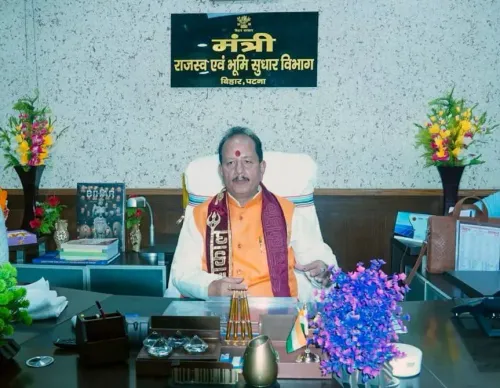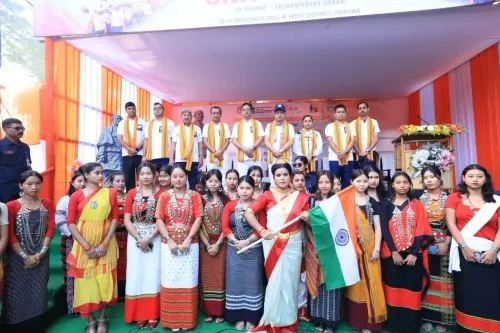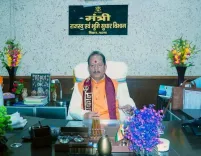Is BJP Supporting Rajnath Singh's Claim About Sindh Returning to India?

Synopsis
Key Takeaways
- BJP's support for Rajnath Singh's statement highlights ideological positions.
- Sindh's historical ties to India are emphasized.
- Geopolitical dynamics with Pakistan are under scrutiny.
- Political figures are reacting to the potential implications.
- Discussions of reunification raise questions on historical narratives.
New Delhi, Nov 24 (NationPress) The BJP on Monday expressed robust support for Defence Minister Rajnath Singh's claim that Sindh, which became part of Pakistan during the 1947 Partition, may have the potential to reunite with India in the future.
His comments, made during an event in New Delhi on Sunday, ignited a fresh political and diplomatic discourse by underscoring what he termed India's lasting civilizational connection to the region.
He emphasized that even though Sindh is not currently within India's political boundaries, it remains a crucial aspect of India's cultural and civilizational heritage.
"While Sindh may not be geographically with us, it has always been a part of India in terms of civilization," he stated.
In response to his statement, the BJP asserted that the possibility of Sindh rejoining India cannot be dismissed, particularly if Pakistan continues its adversarial stance.
BJP MP Praveen Khandelwal told IANS, "The opportunities remain open, and the Sindh Valley civilization is a vital component of India's ancient legacy. What Rajnath Singh mentioned reflects a historical reality. Sindh has a profound link to India and is part of our civilization. When we envision an undivided India, all areas associated with Sindh were part of it. Under Prime Minister Narendra Modi's guidance, we are dedicated to achieving the vision of a united India."
BJP national spokesperson R.P. Singh also endorsed this perspective, stating, "Sindh has always been a part of India -- both culturally and civilizationally. Rajnath Singh has accurately indicated that while Sindh may be separated geographically at present, its cultural essence remains an integral part of India."
JD(U) national spokesperson Rajeev Ranjan also concurred with Singh's viewpoint, arguing that geopolitical reunification is feasible if Pakistan maintains its antagonistic posture.
He noted, "Many nations have seen divisions rectified, such as the unification of East and West Germany after the fall of the Berlin Wall. In a similar vein, regions like Sindh, PoK, and Balochistan that are dissatisfied with Pakistan's governance may pursue reunification with India if the hostile actions from Pakistan persist."








